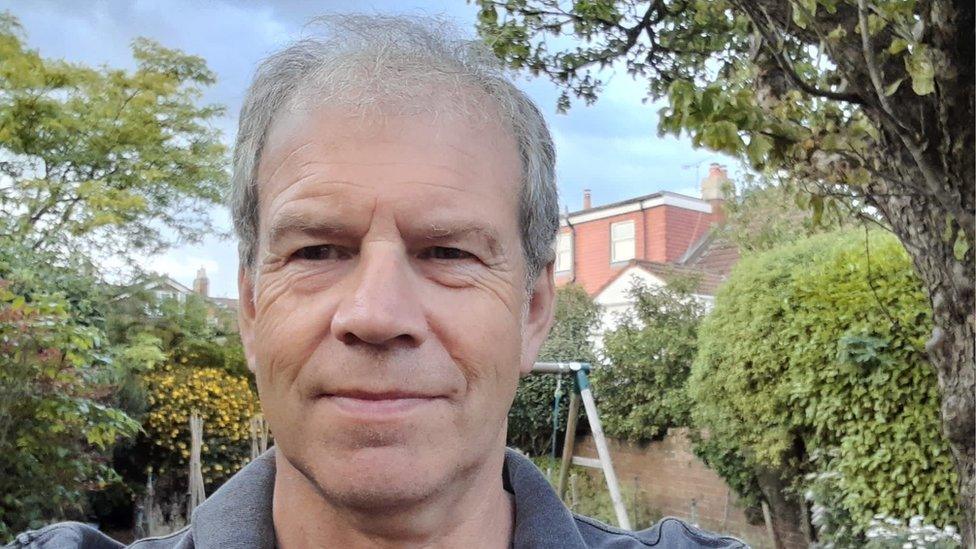Bristol asylum seekers find community in sewing workshop
- Published
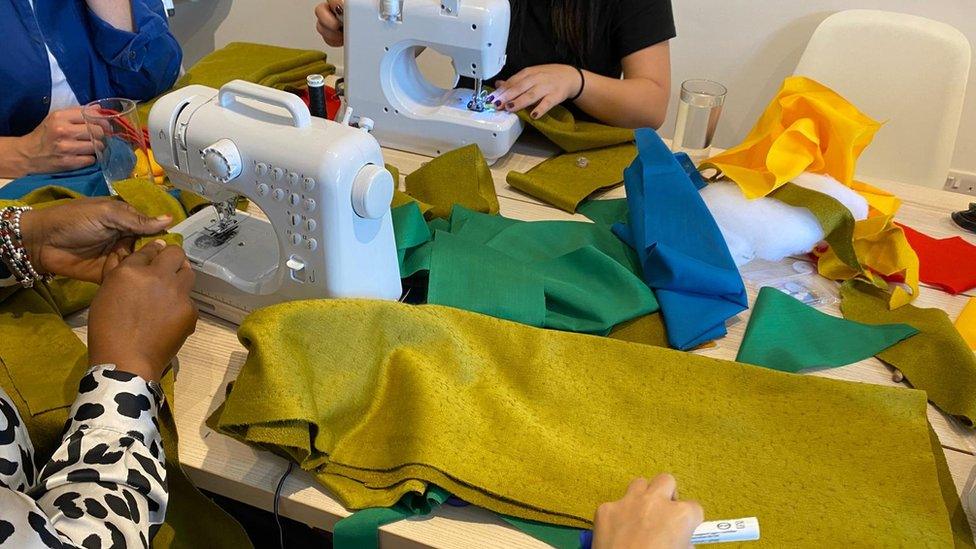
Women living in hotels have met in Bristol to hone their dress-making skills
Asylum seekers are taking part in dress-making classes while they wait for long-term housing.
Hundreds of asylum seekers are currently living in hotels across the West while they wait for their claims to be processed by the Home Office.
The Government said the number of people arriving in the UK seeking asylum has reached "record levels".
For the last four weeks, 16 women living in Bristol hotels have gathered to hone their dress-making skills.
They have all come from different parts of the world, but are living now in hotels waiting for a government decision on their status to be decided.
Typically families should be moved to long-term housing after a few weeks, but a backlog in claims means many are in their accommodation for years.
In Somerset, there are 250 residents living in one hotel, in North Somerset 225 refugees and asylum seekers are spread across three rural hotels, and in Wiltshire 82 are living in one hotel.
In Bath and North East Somerset, there are currently no asylum seekers housed in hotels.
Bristol, Gloucestershire and South Gloucestershire councils have not given the BBC their numbers.
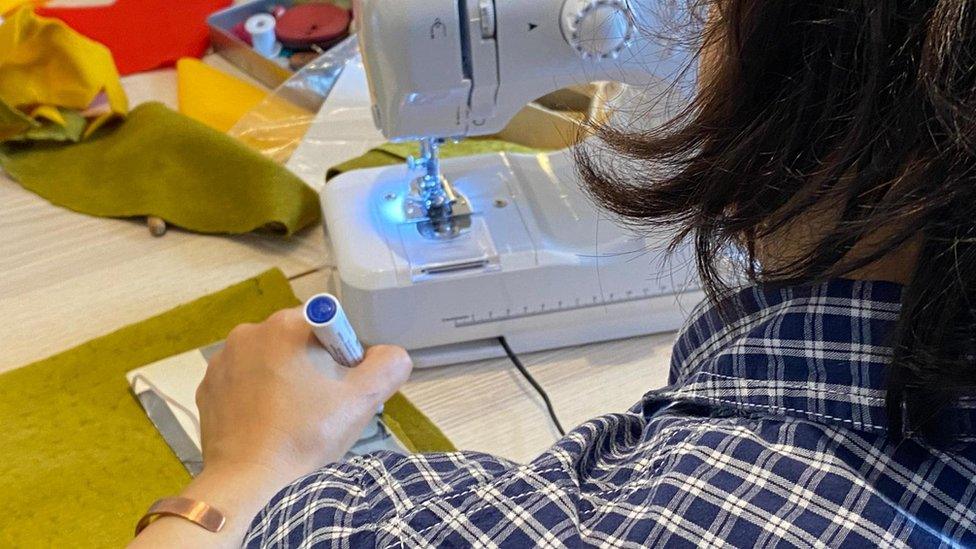
Families are supposed to be moved to long-term housing after a few weeks
Aysha (not her real name) used to be a primary school teacher in Bangladesh, her husband a civil engineer.
They fled their home in November 2021 feeling their lives were in danger.
But for the last two years they have been living in a hotel room with their three children.
Aysha said: "We live on £8 a day, I'm always arguing with my husband in our room, [there is] nothing to do, nowhere to go.
"I am always angry - my mood is bad always."
Social isolation worries
Aysha met Anjie Bual earlier this year and says her life in Bristol dramatically improved when Ms Bual told her about the sewing project she had set up for refugees.
Ms Bual runs Trigger, a creative arts charity which is trying to deliver a cultural programme for more than 250 asylum seekers currently housed in North Somerset hotels.
She lives close to the hotels, which are in rural locations and worries about the social isolation many of the refugees face.
Ms Bual said: "It started with giving people lifts into Bristol one day and things have snowballed."
Trigger has grown into a network of local people who help with donations of basic items from clothes and shoes to deodorant and hair clippers.
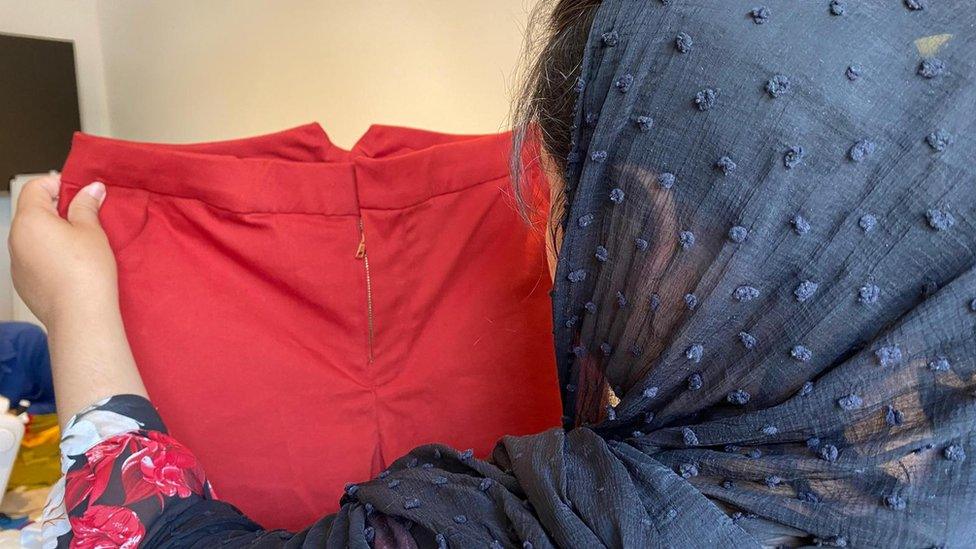
Aysha said her life "dramatically improved" after she started going to the sewing project
Through its Humanity Hotel project, Trigger now organises regular cooking events and asks for input from the hotel residents.
They offer sewing workshops to help build a sense of community.
Ms Bual says: "The work we do with them enables them [the asylum seekers] to come out of their very boring lifestyles, which are numerous people to a room, eating microwaved food with nothing to do."
None of the women are allowed to work while they wait for a government decision on their status.
A Home Office spokesperson said: "The number of people arriving in the UK who seek asylum and require accommodation has reached record levels, placing unprecedented pressures on the asylum system.
"The Home Office and partners identify sites for accommodation based on whether they are safe and available.
"While we accept that hotels do not provide a long-term solution, they do offer safe, secure and clean accommodation for those who would otherwise be destitute."

Follow BBC West on Facebook, external, Twitter, external and Instagram, external. Send your story ideas to: bristol@bbc.co.uk , external
Related topics
- Published5 July 2023
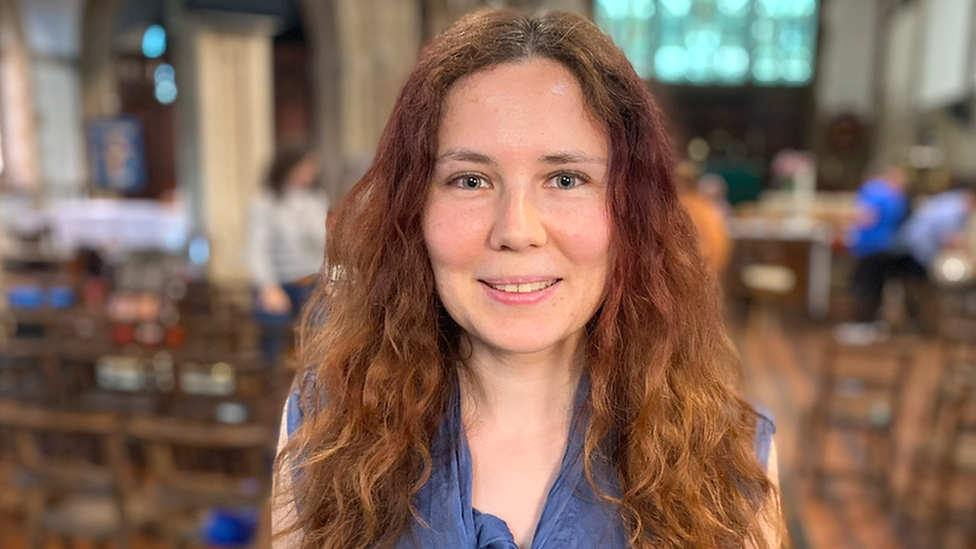
- Published9 July 2023
